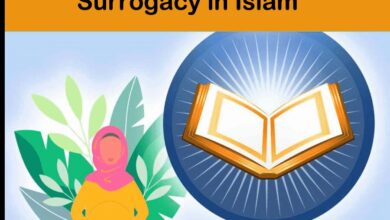Understanding Fertility Preservation and its Options

The decision to start or expand a family through surrogacy is a deeply personal and exciting one. However, for intended parents, surrogates, and egg donors, the path to parenthood can also present various challenges and uncertainties. Fertility care is an important consideration that offers options and peace of mind for individuals embarking on the surrogacy journey. At Patriot Conceptions, a veteran-owned surrogacy agency, we recognize the importance of providing comprehensive information about fertility preservation and understanding its various aspects, benefits, and implications for all involved. in the surrogacy process.
In this blog post, we’ll explore the world of fertility preservation, explore the different methods available, their benefits and challenges, and provide guidance on evaluating and choosing the most appropriate approach. We will examine the importance of fertility care for intended parents, surrogates, and egg donors in the context of the surrogacy journey, helping all parties make informed decisions about their fertility options.
At Patriot Conceptions, our team of experienced professionals is dedicated to guiding individuals through every step of the surrogacy journey, offering compassionate support, resources, and education. By understanding the intricacies of fertility care, intended parents, surrogates, and egg donors can approach the surrogacy journey with confidence, ensuring a successful and satisfying experience.
Fertility Preservation Methods: Weighing Your Options
Fertility preservation is an important consideration for many individuals involved in surrogacy, including intended parents, surrogates, and egg donors. Many methods are available for fertility preservation, each with unique advantages and challenges. We’ll review some of the most common fertility preservation methods, including:
-
Embryo Freezing: This procedure involves using in vitro fertilization (IVF) to create cryopreserved embryos for future use. This option is ideal for intended parents who have already had a successful IVF cycle or want to save embryos for later use.
-
Egg Freezing: Also known as oocyte cryopreservation, egg freezing involves harvesting and preserving a woman’s eggs for future use. The process can be beneficial for women considering surrogacy or egg donation who want to preserve their fertility.
-
Sperm Freezing: Sperm cryopreservation is the process of freezing and storing sperm for future use. This method is particularly useful for men who are facing health treatments that may affect fertility or are considering becoming a sperm donor.
Benefits of Fertility Preservation for Intended Parents
Fertility care offers a variety of benefits for intended parents, including:
-
Flexibility in family planning: Fertility preservation allows intended parents to have more control over their family planning timeline, allowing them to grow their family when they feel it is the right time. right time.
-
Reducing fertility decline: Age-related fertility decline is a concern for many intended parents, and fertility preservation techniques can reduce this concern by preserving embryos, eggs, or sperm for future use.
-
Health-related protection: Fertility protection can act as a security measure for individuals undergoing medical treatments that may affect their fertility.
Fertility Preservation Considerations for Egg Surrogates and Donors
Egg surrogates and donors may also benefit from consideration of fertility preservation for a variety of reasons, such as:
-
Personal family planning: Surrogates or egg donors who want to have their own children in the future may choose to preserve their fertility as a precaution.
-
Multiple donations: Egg donors considering multiple donation cycles can choose to freeze their eggs, allowing them to complete their donation responsibilities without significantly affecting their remaining fertility.
-
Empowering choice: For surrogates and egg donors, choosing to preserve fertility can be an empowering decision, giving them control over their fertility and family planning options.
Factors to Consider When Choosing a Fertility Preservation Method
As you consider your fertility preservation options, it’s important to evaluate a variety of factors, such as:
-
Personal circumstances: Each individual’s unique life situation, personal goals, and family planning needs should play a role in deciding which method of fertility preservation is most appropriate.
-
Financial considerations: Fertility care and related procedures can be expensive, so it’s important to consider your financial resources and potential insurance coverage when making a decision.
-
Medical eligibility: Certain health conditions or treatments may affect an individual’s eligibility for certain fertility preservation methods, so discussing your medical history with a fertility specialist is important.
-
Success rates: Although fertility preservation techniques have advanced significantly in recent years, success rates can vary depending on the method, the individual, and the fertility clinic. Researching and discussing these factors with your fertility specialist is important for informed decision making.
Accepting Fertility Preservation as Part of the Surrogacy Journey
Fertility care is an important aspect of the surrogacy journey, offering parents, surrogates, and egg donors options and peace of mind as they navigate the complexities of fertility and family planning. By understanding the different methods, their benefits, and their implications, individuals can make informed decisions to ensure a successful and satisfying surrogacy experience.
At Patriot Conceptions, we are committed to providing comprehensive information and support for all aspects of the surrogacy journey. Our experienced and compassionate team understands the importance of caring for each individual’s unique needs, allowing them to approach the surrogacy process with confidence. By considering fertility preservation as part of your surrogacy journey, you take an important step in securing the future of your growing family.





